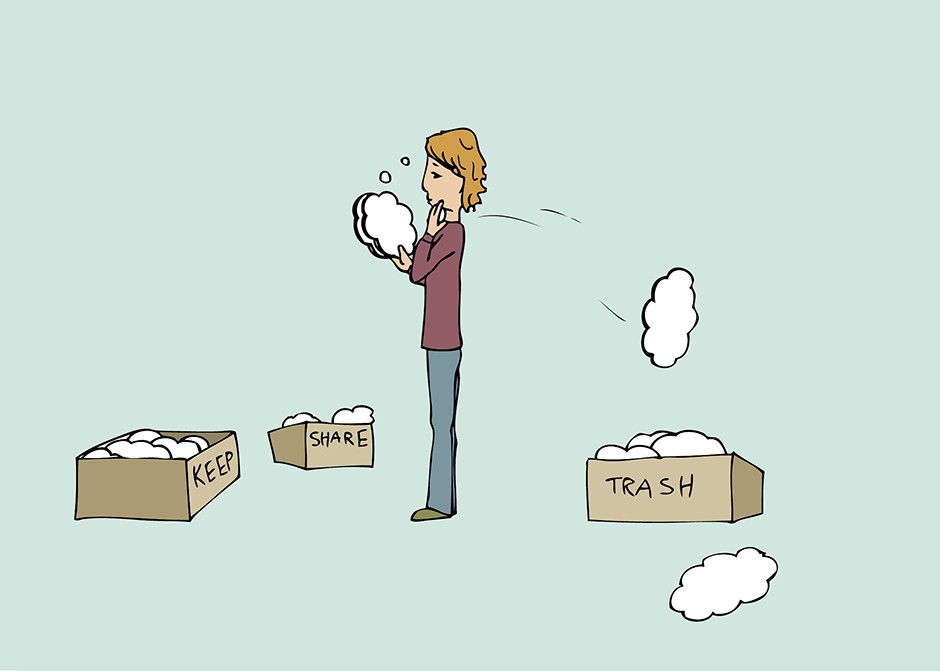Emilie St-Hilaire is a multidisciplinary artist and doctoral candidate in Concordia’s Humanities PhD program. She is studying the idiosyncratic and widely misunderstood practice of reborn doll collecting from a feminist perspective. She has published in the journal RACAR on the topic of research-creation and has exhibited her artwork at galleries and festivals nationally and internationally. Her doctoral research has been supported by scholarships from the FRQSC, Concordia University, Hexagram Network and Francofonds.

This is my final Public Scholars Blog contribution and I deliberated for quite some time before starting. This is a really tough time to choose a topic. Everything is eclipsed by the ongoing Covid-19 crisis and for me it is “too soon” to address the pandemic in my writing. It is, however, difficult to focus on anything else let alone assess the pertinence of other topics.
I searched my computer for the dusty folder called “Blog Post Ideas” and here I found a document entitled “Co-authoring.” I opened it expectantly to find out how much work was already accomplished and I found that the sum total of my previous writing was just two words: “Try co-authoring.” It appears my past self did not leave much for me to work from today. Nevertheless, this is still a topic I want to write about.
I should clarify that co-authoring is rare in the humanities, unlike in the social, natural and health sciences where researchers frequently write and publish articles collaboratively. I first worked on a co-authored paper as a research assistant on a large interdisciplinary project and I found the process intriguing. I enjoyed how we could build upon one another’s ideas and the final result was greater than the contribution of any single person. Through this experience I became familiar with scholars outside my own area of expertise and after a few rounds of editing we had an article ready to submit for publication. The process was less painful and more fun than writing on my own.
Interested? Our current period of isolation might be an ideal moment to dabble in co-authoring.
Take this quiz to find out if you should give co-authoring a try!
1. Can you think of someone with whom you would like to write?
Whose work do you admire? Choose someone with whom you have research affinities and some personal rapport. Together you should discuss how you would like the process to unfold considering your own writing modes and preferences. Consider choosing a topic related to, but not residing entirely within your own area of expertise. If one author’s contributions are less substantial, they can be listed as a second author. If contributions are equal, you can list your names alphabetically.
2. Do you have an idea of what you’d like to write about?
The advantage of co-authorship is naturally that there is more than one perspective. Perhaps you’d like to invite a different disciplinary take on an issue you’ve been thinking through, or have someone propose a counterargument to your thesis. Although conferences are cancelled for the coming months, calls for papers are plentiful. Could the text you prepared for a cancelled or past conference be the seed for a co-authored article? Another way to generate an idea is to think about what text you wish existed. What would you really like to read right now? Be mindful not to make deadlines too strict for your writing team, especially during this period of uncertainty.
3. Do you have time to write?
The beauty of co-writing is that while your colleague works on the article you don’t need to! It’s exciting to open up a document and explore what has been added. I find this very motivating. Much more exciting than re-reading what I myself have previously written. Just be sure that when your turn comes you can commit some time to the project and return your contribution quickly.
Another option is to work on a shared document at the same time. This can be combined with a video conference call—a more social option that is especially useful for brainstorming or problem-solving phases. The timeline for writing can stretch out over the course of months; just be sure everyone on your team is in agreement about your timeline.
If you answered YES to most of these questions then you should definitely try co-authoring!
Contact your potential writing partner(s) with a proposal. Include any possible publication venues or relevant calls for contributions. Let them know why you think they would be great to work with, and see what happens.
For more ideas on how to kick-start your writing check out this Blog Post by Aryana Soliz 6 tips to kick-start your writing in the new year.
About the author
